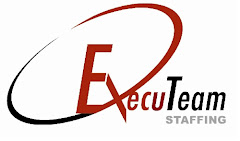
There you are dressed your best and being interviewed for the job of your dreams and the dreaded question gets asked, ‘Describe yourself for me.’ This question is almost always asked by prospective employers and almost always answered with a resounding uuuuuh… Knowing how to describe yourself in an interview can mean the difference of landing your dream job or going back to the want ads.
It helps if you come to grips with the fact that this question will be asked and you prepare for it ahead of time, but be careful that you don’t some off sounding like you memorized a script the night before. When getting ready to describe yourself in an interview you should consider the following:
•Don’t tell them what they already know: Don’t start out with your name and age, they have that on the application and repeating it sort of makes you sound silly. Instead of saying where you went to school –also on the application- tell the interviewer what you got out of your schooling or who influenced you along the way. Get into any activities or hobbies you have that may not be listed on the application. This is your time to let the interviewer know everything about you that is not on the application already.
•Give your strengths AND your weaknesses: First off all when giving your strengths, never come off too cocky. Be proud, but be careful not to toot your own horn too loudly as this can be a major turn-off to the interviewer. Besides giving what your strengths are, also mention your weaknesses, but do it in a way that makes you look good. ‘I have no patience for those that do not want to go the extra mile to help a co-worker,’ or ‘A big fault of mine is that I tend to pay too much attention to detail when it may not be needed.’ Statements such as those show the interviewer that you don’t think you are perfect, but that your faults are good ones to have.
•Be honest: This is most important of all. If you are not being honest many prospective employers can see right through your bologna and besides, you are who you are. If the job isn’t meant to be, then that is life. Never pretend to be somebody you are not.
•Speak clearly and don’t stammer: This goes back to the whole practice thing. If you are constantly stammering or saying ‘uh’ then you give off the impression that you are searching for words to say. This gives a bad vibe off because if you don’t know who you are, then who really does?
While there are no magic words to speak that will guarantee you a job, you should be prepared to adequately describe yourself at an interview. Again, you know the question is coming, so you may as well prepare for it. A good trick is to stand in front of the mirror and interview yourself. Ask yourself the question and answer the question. Would you hire yourself? If the answer is no, then chances are neither will the prospective employer, so keep practicing until the answer is yes.
Learn more interview tips at JobGoRound, the career advice and resume service website.
- Jason Kay
From www.net-temps.com










